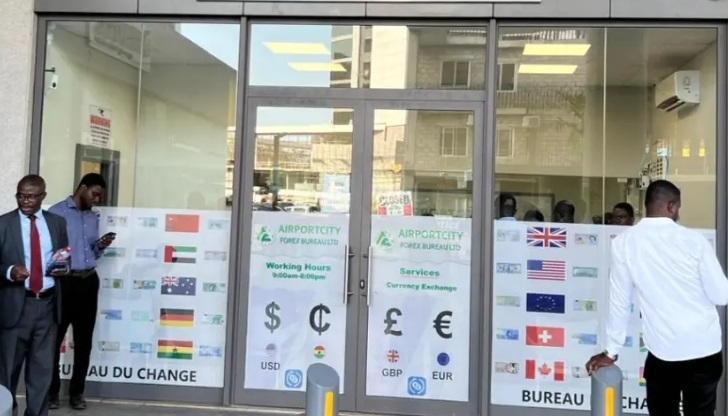BoG directs all Forex Bureaux to Verify Ghana Cards and Passports Before Transactions, Effective August 1

The Bank of Ghana has announced a significant update to its foreign exchange trading system, introducing a centralized platform designed to bolster the integrity and development of the nation’s financial system. This new platform is set to become operational on August 1, 2024, and will be a crucial step in ensuring that foreign exchange transactions in Ghana are conducted in a secure, transparent, and regulated manner.
One of the key requirements under this new system is that all licensed Foreign Exchange Bureaux in Ghana must verify the identities of their customers before conducting any transactions. This verification will be done using either the Ghana Card or a Passport for foreign nationals. This measure is in line with the Bank of Ghana’s commitment to promoting safe and sound operations within the foreign exchange market.
The introduction of this centralized trading platform represents a major milestone in the Bank of Ghana’s ongoing efforts to improve oversight of the foreign exchange market. By requiring customer identity verification and ensuring that all transactions are conducted through licensed dealers, the Bank aims to enhance its ability to monitor and supervise the operations of Foreign Exchange Bureaux. This initiative is also designed to ensure compliance with key regulations, including the Foreign Exchange Act, 2006 (Act 723), the Anti-Money Laundering Act, (Act 1044), and other relevant financial regulations.
According to a statement from the Bank of Ghana, several key requirements will be enforced to ensure the effective utilization of this new system:
- Trading with Licensed Dealers Only: All buying and selling of foreign currencies must be conducted exclusively through dealers licensed by the Bank of Ghana, including licensed Foreign Exchange Bureaux.
- Platform Usage: All transactions carried out at Foreign Exchange Bureaux must be conducted on the new centralized trading platform, ensuring that all operations are monitored and regulated.
- Electronic Receipts: Foreign Exchange Bureaux are mandated to issue electronic receipts for all purchases and sales of foreign currencies. This move is aimed at enhancing transparency and ensuring accurate record-keeping for all transactions.
- Customer Identity Verification: In accordance with the Bank of Ghana’s Notice No. BG/GOV/SEC/01, titled “Use of Ghana Card for All Financial Transactions,” individuals seeking to buy or sell foreign currencies must present a Ghana Card or Passport (for foreign nationals) and undergo biometric verification. This step is crucial in ensuring that all foreign currency transactions are conducted by verified individuals.
The integration of this platform with the National Identification System will further ensure that only verified individuals are allowed to conduct foreign exchange transactions. Moreover, the platform will be linked to the national payment system, facilitating electronic payments and enabling the receipt of Ghana Cedis for foreign currency transactions at bureaux.
The Bank of Ghana has emphasized that all foreign exchange transactions must be conducted through licensed dealers, reinforcing the importance of compliance with regulatory standards. This centralized platform is part of a broader effort by the Bank to enhance the security and integrity of the financial system in Ghana, ensuring that all foreign exchange activities are transparent, properly regulated, and aligned with international best practices.
However, the introduction of this centralized foreign exchange trading platform by the Bank of Ghana is a critical step towards strengthening the country’s financial system. By ensuring that all transactions are conducted through licensed dealers and that customer identities are verified, the Bank is setting a new standard for transparency, security, and regulatory compliance in the foreign exchange market.